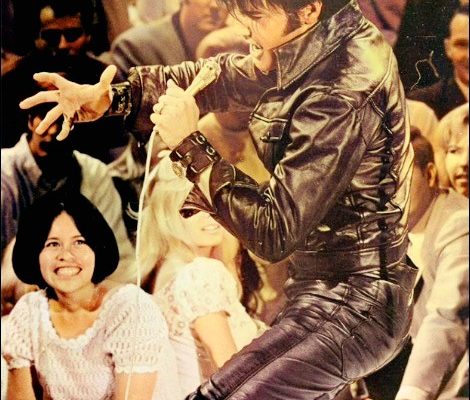Elvis Presley’s life and career continue to fascinate fans, even 47 years after his passing at the age of 42. Now, a new Netflix documentary, Return of the King: The Fall & Rise of Elvis Presley, offers a rare look behind the scenes of his iconic 1968 comeback special and sheds light on the personal struggles that shaped him as an artist.
The Comeback Story
The 1968 NBC special marked Elvis’s return to live performance after a seven-year hiatus focused mainly on film work. During that period, Presley faced growing frustration with Hollywood’s formulaic musicals, which left him feeling creatively stifled. He feared his career was being mismanaged and was eager to reclaim his place as a live performer.
Director Jason Hehir emphasizes the significance of this moment: “1968 was the biggest crossroads of Elvis’s life. It made sense to take a deep dive into his decisions and the emotional journey behind them.”
In the documentary, Presley candidly reflects on his career frustrations: “Hollywood’s image of me was wrong, and I knew it, and I couldn’t do anything about it… I just felt obligated to things I didn’t fully believe in.”
Priscilla Presley adds perspective, recalling a clip from the 1967 film Double Trouble, where Elvis performed Old MacDonald Had a Farm. “That to me is a crime,” she says. “It made him a laughingstock—and he knew it.”
Overcoming Stage Fear
Before the comeback special, Elvis was nervous about performing live again. “He almost didn’t leave his dressing room,” Hehir explains. “He always had anxiety about performing, but once on stage, that’s where he felt most at home.”
The documentary highlights how Elvis worked closely with producer Steve Binder and costume designer Bill Belew to reinvent his stage persona. Inspired by a photo of Elvis in leather on a Harley Davidson, they created the black leather outfit that became iconic. It symbolized both his return to music and his personal reinvention.

Impact of the Special
The comeback special was a resounding success, earning high viewership and revitalizing Presley’s career. While album sales weren’t as high as earlier in his career, the special reignited public interest in his artistry and set the stage for future live performances.
Hehir notes, “He hadn’t performed in seven years… the teenage girls who once screamed for him were now mothers. Yet Elvis still captivated them and proved his enduring talent.”

Legacy Beyond Hollywood
Though his film career never fully recovered, Presley’s 1968 comeback reaffirmed his status as a legendary performer. The documentary also explores how Hollywood had limited his growth as an actor, leaving fans to wonder what he might have achieved under different circumstances.
Ultimately, the special wasn’t just about music—it was about reclaiming his artistry, dignity, and identity as Elvis Presley, the performer and the person.
For fans, Return of the King is more than a retrospective; it’s a chance to understand the man behind the King’s crown, the struggles he faced, and the remarkable resilience that allowed him to make one of the most celebrated comebacks in music history.
If this documentary inspires nostalgia, share it with fellow Elvis fans and celebrate the King’s enduring legacy!


